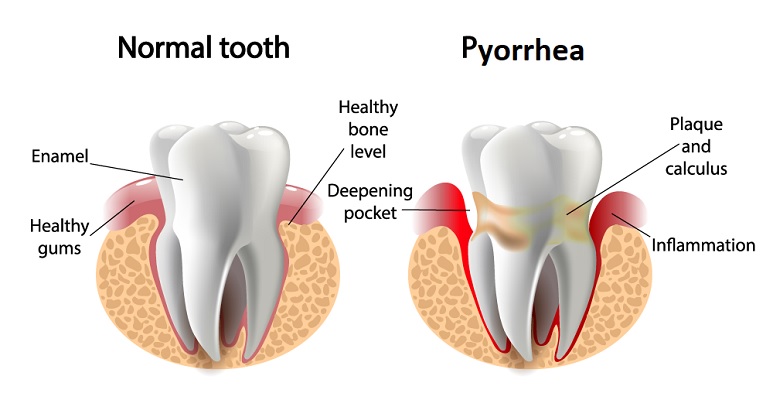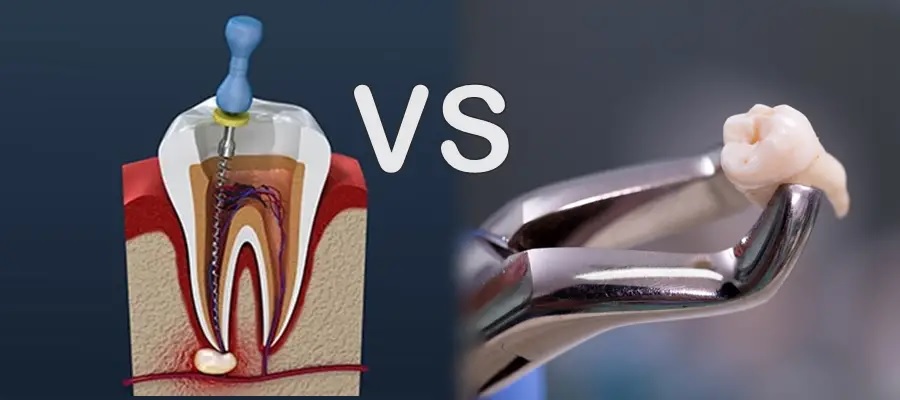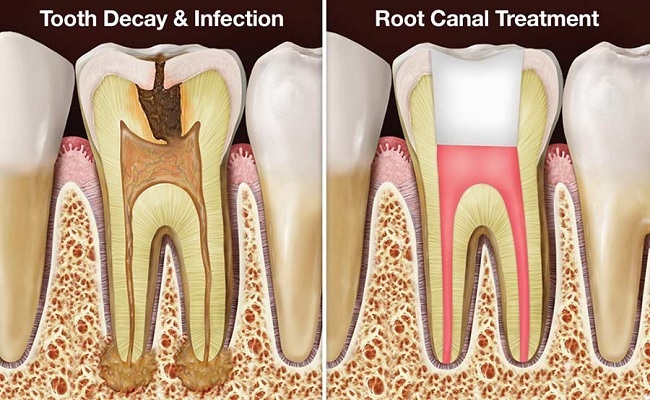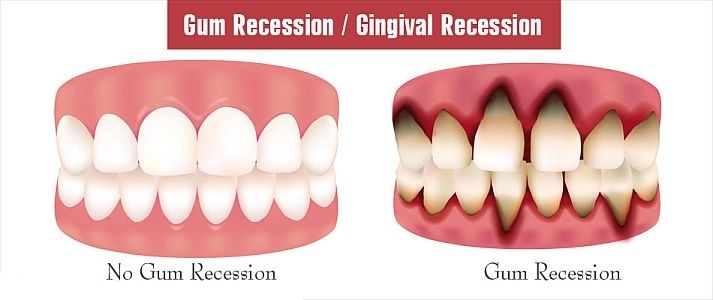Pyorrhea, also called periodontal disease, is a disease that affects the supporting tissues of the teeth, that is, the periodontal. It can have various causes and if left untreated it can lead to serious consequences such as tooth loss.
Afterwards you will have all the information regarding the symptoms and diagnoses necessary to recognize pyorrhea and advice by the best dentist in Delhi to prevent it. But first let's go and see what are the causes of this disease.
Causes of pyorrhea
Among the most common causes of pyorrhea there is certainly an untreated gingivitis. In fact, the bacterial plaque can position itself in the area of passage between the crown and root, making it possible for the production of toxins by bacteria that penetrates to the depth of the gum, attacking the tissues, explains dentist in Pitampura.
However also the genetic predisposition that can favor, together with other causes, the onset of the disease.
Finally, cigarette smoking or diseases such as diabetes mellitus can cause pyorrhea.
Symptoms
There are many signs that allow you to recognize pyorrhea. In fact, it presents numerous symptoms that must cause concern. Among these, the most common are:
- Bleeding gums. This can occur spontaneously, during tooth brushing or during normal chewing of the teeth.
- Dental sensitivity. If you have contact with very cold or very hot foods, you perceive greater sensitivity can be a symptom of pyorrhea.
- Inflammation of the gums. It represents the most common symptom (affects about 50% of patients) and occurs mainly in the acute phase.
- Swelling of the gums. Swollen or painful gums.
- Sensitivity of the gums. Gums sensitive to toothbrushes or hard food can also be a sign of the disease.
- Increase in the space between the teeth. By reducing dental stability considerably, the onset of this type of problem is very frequent.
- Gingival recession. This process occurs when the gums withdraw and leave the root uncovered, resulting in both aesthetic and functional damage, such as increased dentinal sensitivity and local inflammation.
- Halitosis. This term refers to the unpleasant odor emitted during export and could represent another symptom of pyorrhea.
- Movement of the teeth. It occurs mainly in advanced states of the disease and is caused by the progressive destruction of the supporting tissues of the teeth.
- Tooth loss. It occurs especially in the final phase of the disease and can sometimes be caused by the incorrect treatment or the total lack of the latter.
Therefore, if you have detected one of these symptoms, it is necessary that you immediately contact the best dentist in Pitampura to make a diagnosis and understand if it is actually pyorrhea or not.
Diagnosis
To be sure of not having periodontal diseases it is necessary to carry out diagnoses based on new diagnostic systems at dental clinic in Pitampura and analyzes based on biomolecular and genetic methods that allow to verify the state of the mouth and the predisposition to pyorrhea.
The diagnostic procedure, in addition to microbiological and genetic analysis, also includes radiographic examinations, photos and models of the mouth and periodontal surveys.
The microbiological and genetic analyzes aim to assess the quantity of bacteria present that caused the infection as well as the patient's predisposition level.
In particular, the microbiological analysis involves the choice of 5 sites that are representative of the oral cavity situation together with the more serious ones in depth. To detect the quality and quantity of microorganisms, proceed with the insertion of sterile paper cones. The genetic analysis instead takes place by rubbing a swab on the mucous membranes for about 30 seconds in order to collect the exfoliating cells. In this way it will be possible to establish the genetic predisposition.
The radiographic examination instead consists of an overview capable of providing the image of the frontal arch and of the bone structures. It aims to evaluate the position and size of the paranasal sinuses, the presence of bone rarefaction and all the dental elements.
The study and photo models consist of an impression of the mouth, taken to analyze the occlusion of the two arches while the photos serve to document the case before and after therapy.
Finally, the periodontal survey is an examination carried out by the dentist in Shalimar Bagh with a probe to evaluate the measurement of pockets, gingival recession and dental mobility.
Prevention of pyorrhea
As you have seen, the most effective tool for the prevention of pyorrhea is definitely a diagnosis. Prevention can therefore prove to be fundamental, especially if carried out from a young age.
In this regard, it can be very useful to have correct dental hygiene. The constant and regular cleaning of the teeth makes it possible to eliminate the formation of tartar.
In addition, it is necessary to maintain a correct lifestyle and in particular a balanced diet and monitor all pathologies that can favor the onset of pyorrhea.






